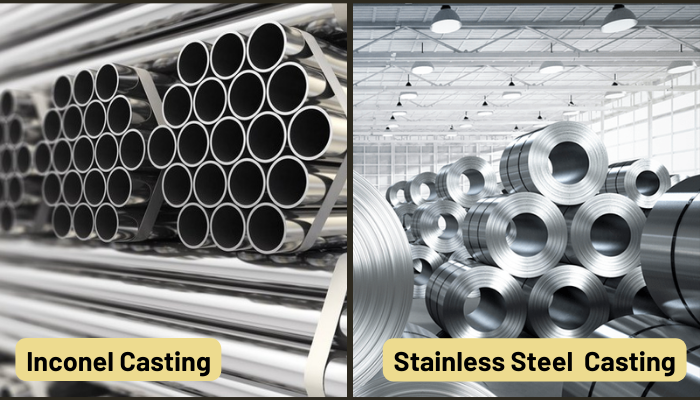Inconel – An Overview
Inconel is a material that has been specially designed to withstand some of the most demanding operating conditions encountered in the industrial industry. Its exceptional heat resistance is unmatched even by stainless steel, and it retains its tensile strength at temperatures up to 2,000°F when other steels do not.
Because Inconel is a nickel and chromium alloy, it is resistant to oxidation and is thus suitable for tasks involving a variety of gases and wide temperature variations. Inconel would be more suited for use in the oil and gas extraction, aerospace, and medical sectors, among other things. While the stainless steel addition gives it improved corrosion resistance and makes it especially resistant to seawater as well as hydrochloric and sulfuric acids, the steel additive does not affect the steel’s strength.
Inconel is a nickel-based superalloy with a solid solution-strengthening structure that exhibits exceptional strength at high temperatures.
About Stainless Steel Casting
Stainless steels are distinguished by the presence of chromium over 10.5 percent by weight in their composition. Stainless steels are more corrosion-resistant than carbon steel. Internal strength and integrity are ensured in the manufacturing of all components. With the precise lost-wax investment casting technique, we can manufacture components that meet the most stringent tolerance specifications. By using Solidification Modeling software to predict the outcome of a casting’s internal quality level before a part is ever manufactured, Barron can significantly reduce time to market while also reducing development costs associated with traditional “trial and error” methods of process development.
What is the difference between Inconel and Stainless Steel?
For beginners, Inconel is considerably more costly than stainless steel alloys, which is why it is used in aerospace. Inconel also offers much-improved corrosion resistance and strength when exposed to high temperatures. Steels such as 17-4PH stainless steel, on the other hand, will have greater strength than Inconel at lower temperatures.
When choosing between two distinct alloys, the cost, temperature, and strength are the most important factors to take into consideration. The use of stainless steel is likely to be the best option when a low-cost yet reasonably robust component is needed. If an air-critical component with high-temperature requirements is needed, then Inconel is a much superior alloy for that application than titanium.
When comparing stainless steel and Inconel, it’s essential to note that the two metals have somewhat different chemical compositions. The alloy Inconel is a much superior choice for that application, especially if an air-critical component with high-temperature requirements is required.
However, certain chemicals such as sulfuric acid may be more resistant to stainless steel than to Inconel, depending on their composition. Because of this, the choice of these two metal alloys to be employed will vary based on the particular purpose for which they will be used.
The fact that Inconel is heavy and difficult to work with means that its usage is restricted to areas where its characteristics are critical.
If the benefit of nickel alloys is their great strength, which can be maintained at very high temperatures, and good creep-rupture strength at temperatures as high as 700 degrees Celsius, the disadvantage is their low cost (1300 degrees F). However, they have the drawback of being very thick and difficult to deal with.
Inconel Investment Castings
Manufacturing form items from difficult to process and fabricate materials is made only possible by the use of Inconel Investment Castings, which are utilized on a huge scale in a wide variety of industries. The investment casting method may be carried out utilizing a broad range of alloys, including “Inconel Casting” materials, according to the requirements of the project. Material selection for a component is critical and is determined by the design and application of the part. With the growing usage of nickel-based alloys in a wide range of applications, it is becoming more important to find a dependable supplier who is knowledgeable and equipped with the specialist equipment required.
Even though there are only a few experienced providers, Inconel Casting Manufacturer is one of the top manufacturers of Inconel-based castings.
They are experts in independent development and design, which makes them a valuable resource. Its range of product includes Inconel investment casting and handle investment casting, which is available in a variety of sizes and specifications to meet the specific application requirements of our customers. Its features include the following:
- Dimensional accuracy
- Fie finish
- Corrosion resistance
- Easy installation
Furthermore, these Inconel Castings are tested on various quality measures to ensure that they are free of defects.





